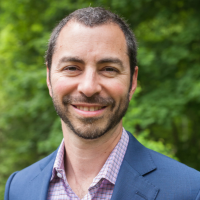Michael McCurdy

Michael McCurdy, MD, is a triple-board-certified critical care physician who has used his extensive clinical and research experience to focus on creating, developing, and deploying novel solutions to complex medical problems encountered in the inpatient, outpatient, austere, and military environments. A clinical professor of Pulmonary and Critical Care Medicine and Emergency Medicine at The University of Maryland School of Medicine, Mike founded the Critical Care Medicine Fellowship Program, worked clinically in the emergency department and ICU, and participated in numerous clinical research efforts before serving as Chairman of the Department of Medicine and ICU Medical Director at the top community hospital in Maryland. Mike has authored over 100 peer-reviewed manuscripts that have been published in journals that have included Nature, the New England Journal of Medicine, JAMA, and nearly every major critical care and emergency medicine journal. His clinical research primarily focuses on novel ways to identify and resuscitate sepsis and other shock states, improve acute medical care in austere environments, and provide telemedical ultrasound support to remote clinicians. His work has led to multiple inventions to assist with bedside resuscitation efforts.
Dr. McCurdy co-created an online collaborative critical care education website (www.MarylandCCProject.com), which received the American Thoracic Society (ATS) “Innovations in Fellowship Education” Award, and the Association of Pulmonary & Critical Care Medicine Program Directors awarded him the “2021 Mid-Career Educator Award.” He has lectured at multiple international conferences on topics that include septic shock, medical education, and delivering critical care in resource-limited settings.
Dr. McCurdy also serves as an advisor or board member for multiple public and private companies and nonprofit organizations. He remains involved with Nereus Medical Solutions, a concierge critical care team that includes former US Naval Special Warfare medical officers, to deliver critical care in various austere environments around the globe. While he enjoyed serving as the lone physician providing medical support for a National Geographic around-the-world trip to many of the globe’s most remote regions, Dr. McCurdy has focused the bulk of his international efforts on St. Luke’s Hospital in Port-au-Prince, Haiti. His multi-year efforts there centered on educating Haitian physicians to conduct clinical research for the purpose of establishing a long-term, sustainable medical infrastructure that seamlessly integrates low-cost technology and high-quality education and patient care. Dr. McCurdy’s hope is that his group’s work will serve generations of Haitians while also providing a framework for the creation of similar sustainable medical care in other resource-limited countries.
Dr. McCurdy currently serves as the Chief Medical Officer of BOA Biomedical, a sepsis-focused medical technology company based in Cambridge, MA, that utilizes DARPA-funded technology developed at Harvard University’s Wyss Institute. BOA’s pan-pathogen-binding protein enables rapid pathogen identification so that the second dose of antimicrobials specifically targets the invading organisms without contributing to the growing problem of antimicrobial resistance.





























